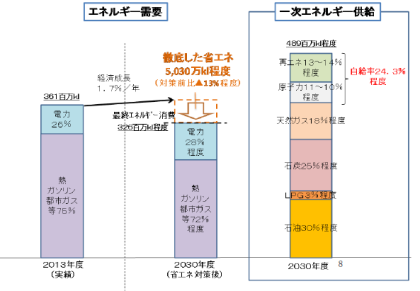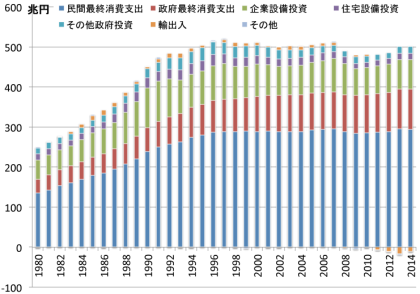Thesis
松下政経塾・塾生研究レポート 〜自治体電力ビジネスの“日本版シュタットベルケ化”の可能性~ The Matsushita Institute Discussion Paper: Comparative study between municipality-operated Power Producer and Suppliers in Japan and “Stadtwerke” in Germany.
(キーワード)電力自由化・電力小売事業・自治体・ドイツ・シュタットベルケ(Keywords)Deregulation of electricity retailing, Municipalities founded PPS, Germany, Stadtwerke
レポート全文ダウンロード: 自治体電力ビジネスの“日本版シュタットベルケ化”の可能性 (PDFファイル:3.3MB)
【要約】
2016年4月に始まった電力の小売り全面自由化に伴い、電気小売業への他業種からの参入が相次いでいる。それら参入企業の一部には、基礎自治体が出資するなど、自治体が主体的に関わって設立された電力会社(以下、自治体電力という)が含まれる。それら自治体電力は、電気小売業を当該自治体地域における公共サービスとして位置づけ、水道事業や、通信事業と併せて提供する事例もみられる。
日本より一足先に電力自由化が始まったドイツでは、1998年の自由化開始後、今の日本の現状と同様に他業種からの電気小売業への参入が相次いだ。その後、徐々に淘汰が進み、現在では大手4社が大きなシェアを占めている。しかしながら、4社の電気小売りシェアは40%程度に留まり、対して、小売りシェアのおよそ半数をシュタットベルケと呼ばれる地域毎に設置された事業体が担っている。シュタットベルケは現在、ドイツ全国に1,400社ほどあるとされ、電力、ガス、水道などの供給に加え、公共交通、その他公共インフラに関わる運営を担っている場合が多い。一つの基礎自治体で1社設置する場合もあれば、複数の自治体で共同運営する場合、民間から出資が入る場合など様々なバリエーションがある。また、市が100%出資する持ち株会社を設立し、その傘下に、民間も出資する事業会社がおかれ、エネルギー、公共交通、港湾・フェリー、住宅、市営プール、廃棄物処理、都市開発、屋外広告、ラジオ、など様々な事業が展開されるケースもある。そして注目すべきは、それらシュタットベルケは地域の雇用に少なくない貢献をしていることである。
本稿では、既に設立された自治体電力について調査し、ドイツの先行事例と比較する事で、それら自治体電力が“日本版シュタットベルケ”になり得る可能性と、それに必要な条件を整理した。自治体電力が“シュタットベルケ化”するにはそれぞれの地域的特性に合わせたビジネスモデルの丁寧な議論が必要であるものの、次の4点が鍵であると得た。
(1) 地域エネルギー資源による独自電源の確保
(2) 独自の電力需給管理システムの保有
(3) 自治体のコミットメント
(4) 専門人材の確保
2017年現在、わが国では地方創成が政策の柱として掲げられ、様々な施策が行われている。一方、それとは別に進む電力システム改革は、奇しくも自治体電力という新たな公共サービスの担い手を生み出しつつある。今後、それら自治体電力が“日本版シュタットベルケ”と呼べる状況に至ることは、地方創生の一つの核となるだけに留まらず、公共インフラ維持という面でも新たな解決策を与えうる余地を生み出すかもしれない。本レポートが、自治体電力ビジネスの可能性を広げる一助となることを期待する。
【Abstract】
The deregulation of Japan’s electricity retail market in April 2016 allowed a lot of new entrants other than traditional power companies to enter the market. Such entrants are called Power Producer and Suppliers (hereinafter, refered to as PPS) and some of PPSs are founded by local governments. Municipalities involved in electricity market position their business as public services and in some cases they provide electricity along with water supply and tele-communication service.
Germany’s electricity market was fully liberalized in 1998, when the situation in Germany was similar to that of present Japan. Then, due to the increased competition, four major power companies have become to occupy the market approximately up to 40%. The rest of the market, is roughly occupied by companies founded in each region, called “Stadtwerke” in German language. The total number of “Stadtwerke” is considered to be more than 1,400 across the country, and in many cases they are also responsible for the operation of public transportation and other public infrastructure, in addition to the supply of electricity, gas, water, etc. There are many different business patterns of “Stadtwerke.” Examples include ones founded and operated by local municipalities only, and those jointly run by several municipalities, while some are partly funded by private corporations. In some cases, under the umbrella of a 100% municipality invested company, an operating firm is established with private funds, whose services range from energy supplies, public transportation, operations of harbors, ferries and swimming pools, housing and urban development, and waste disposal to business activities such as advertisement, radio, and so on. It should be noticed that such “Stadtwerke” makes a considerable contribution in bringing new jobs in a community.
In this study, PPSs founded by municipalities in Japan were investigated and compared to the precedent cases of Germany “Stadtwerke”. After discussing the possibility of Japanese version of “Stadtwerke,” necessary conditions for its realization are examined.
Although further discussion of business model based on regional characteristics is recommended, the four key points were obtained as below;
1. Securing unique power supply by regional energy resources
2. Owning electric power supply and demand management system
3. Strong municipal commitment
4. Recruitment of specialists
As of 2017, regional revitalization is one of Japanese government’s important policies and various measures are being carried out for that purpose. Meanwhile, the reform of power system is also underway, creating new operators of public services such as municipality-operated PPS. If there is any chance of such PPS becoming a Japanese version of “Stadtwerke” in the future, they would not only play a crucial role in regional revitalization, but also provide solutions for better public infrastructure services. I hope this report will help expand the possibilities of municipalitiy-operated PPS business.
Download Report: Comparative study between municipality-operated Power Producer and Suppliers in Japan and “Stadtwerke” in Germany. (PDF 3.3MB)
木村誠一郎の論考
Thesis
-
松下政経塾・塾生研究レポート 〜自治体電力ビジネスの“日本版シュタットベルケ化”の可能性~ The Matsushita Institute Discussion Paper: Comparative study between municipality-operated Power Producer and Suppliers in Japan and “Stadtwerke” in Germany.
-
松下政経塾・塾生研究レポート 〜五島市における洋上風力発電プロジェクトに伴う経済効果〜 The Matsushita Institute Discussion Paper: Economic Impact of Offshore Wind Farm Project in Goto City
-
松下政経塾・塾生研究レポート 〜わが国における国際送電連系の意義に対する一考察〜 The Matsushita Institute Discussion Paper: Significance of Cross-Border Interconnected Power System for Japan Electricity Grid
-
- 2016/1/29
- 経済・産業
松下政経塾・塾生研究レポート ~2045年エネルギー融通国に向けた私の挑戦~
-
わが国がとるべき経済・財政戦略 ~今こそ自国のエネルギー資源開発に投資せよ~
Seiichiro Kimura

第35期
木村 誠一郎
きむら・せいいちろう
(一社)離島エネルギー研究所 代表理事/(公財)自然エネルギー財団 上級研究員/九州大学 招聘准教授
Mission
「2045年エネルギー融通国ニッポン」の実現





